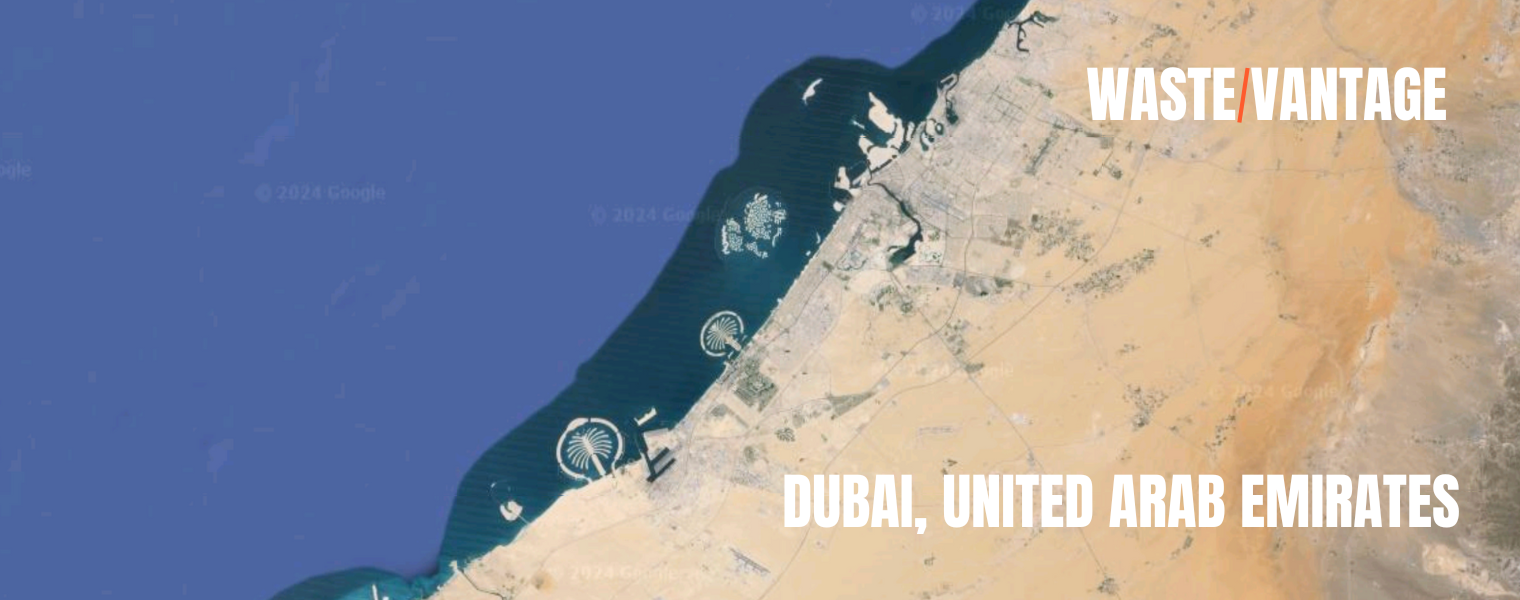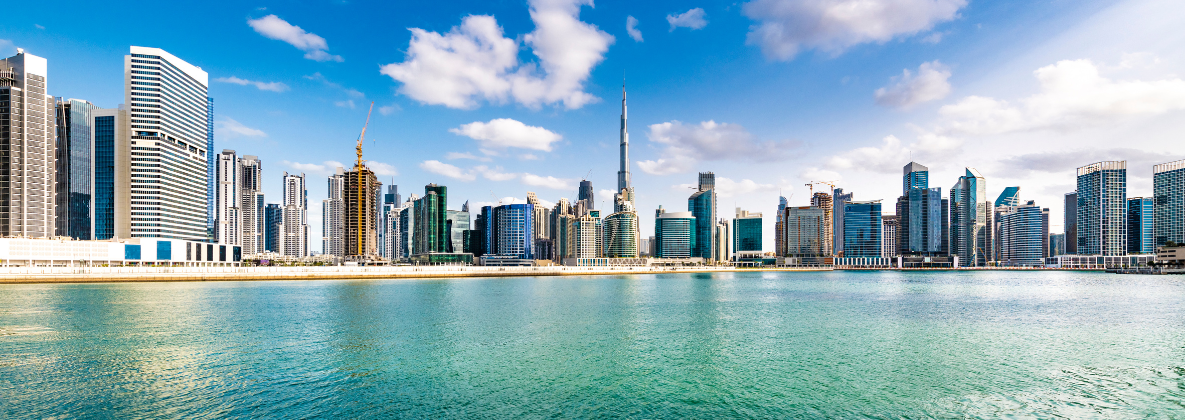WasteVantage City View
Dubai, United Arab Emirates

Carbon Emissions
8.0 MT/Capita
Water Usage
550 L/Capita.Day
Public Transport Usage
12% of Population
Cycling Infrastructure
6 km/100,000 People
Electric Vehicle Adoption
0.5% of Total Cars
Green Building Certification
3% of Total Buildings
Urban Heat Island Effect
5°C Above Rural Areas
Renewable Energy Usage
7% of Total Energy
Air Quality Index (AQI)
45
Waste Recycling Rate
25% of Total Waste
Green Spaces
5% of Total Area
Energy Efficiency
9,500 kWh/Capita
Biodiversity Index
0.20
Social Equity Index
0.70
Dubai, United Arab Emirates
Dubai: Leading the Way in Urban Sustainability
Dubai, a city known for its opulent skyscrapers and cutting-edge developments, is now positioning itself as a leader in sustainability. Amid its rapid urbanization and economic growth, Dubai is adopting innovative strategies to balance its developmental ambitions with ecological stewardship. This post explores Dubai’s journey towards sustainability, highlighting government initiatives, public sentiment, corporate contributions, and the urgent need for collective action.
Dubai, the glittering jewel of the United Arab Emirates, has become synonymous with luxury and innovation. However, with its rapid growth and urbanization, the city faces significant environmental challenges. In response, Dubai is embracing sustainability as a cornerstone of its development strategy. From enhancing green infrastructure to promoting renewable energy, the city is committed to creating a future where prosperity and sustainability coexist harmoniously.

Government and Municipal Initiatives
The government of Dubai has been a driving force behind the city’s sustainability efforts, implementing ambitious policies and projects to address environmental challenges. The Dubai Clean Energy Strategy 2050 aims to make Dubai a global hub for clean energy, targeting 75% of its energy from renewable sources by 2050. This strategy involves investments in solar energy, sustainable water management, and green transportation systems.
Dubai has also launched the Dubai Green Building Regulations and Specifications, which require new constructions to meet specific environmental standards. This initiative is designed to improve energy efficiency, reduce carbon emissions, and enhance the city’s resilience to climate change. By prioritizing sustainable urban planning, Dubai is setting the stage for a greener, more sustainable future.
Public Sentiments and Understanding of Sustainability
Public awareness of sustainability in Dubai is growing, with residents increasingly recognizing the importance of environmental conservation. Surveys suggest that the majority of Dubai’s residents support the city’s green initiatives and are eager to adopt sustainable practices in their daily lives. The government’s educational campaigns and community programs have effectively raised awareness about the benefits of recycling, energy conservation, and sustainable living.
The younger generation, in particular, is passionate about environmental issues and is advocating for policies that protect the environment and ensure a livable future. This shift in public sentiment is driving demand for eco-friendly products and services, reflecting a broader cultural change towards sustainability.
Corporate Efforts in Sustainability
Corporate Dubai is actively contributing to the city’s sustainability agenda by integrating eco-friendly practices into their business models. Many companies are reducing waste, optimizing supply chains, and investing in renewable energy solutions to minimize their environmental impact. The retail and hospitality sectors are increasingly adopting sustainable practices, such as sourcing responsibly and reducing plastic use.
Prominent brands and businesses in Dubai are setting the standard for sustainability, recognizing the value of environmental stewardship in enhancing their reputation and competitiveness. The tech industry, in particular, is playing a crucial role in developing innovative solutions that support the city’s sustainability goals.
Innovation & Growth
Dubai is leveraging innovation to drive sustainable growth, using cutting-edge technologies and eco-friendly practices to create a resilient urban environment.
Community & Environment
The city’s emphasis on community involvement and environmental preservation highlights its commitment to a harmonious balance between development and nature.
Energy Efficiency
By implementing energy-efficient solutions, Dubai is reducing consumption and promoting sustainable energy use, paving the way for a greener future.
Leadership & Influence
As a leader in sustainability, Dubai’s initiatives serve as a model for other cities, showcasing the power of proactive environmental action.
Cause for Concern
The Urgency of Action
The need for immediate action on sustainability in Dubai is pressing, given the environmental challenges posed by climate change and urbanization. The city faces issues such as water scarcity, rising temperatures, and air pollution, which could have severe implications for public health, economic stability, and quality of life.
Delayed action could exacerbate these problems, leading to increased health costs, infrastructure damage, and social inequality. It is essential for all stakeholders—government, businesses, and citizens—to collaborate and implement sustainable practices that mitigate these risks and build resilience against future challenges.
Next Steps
The Path Forward
Dubai’s path toward sustainability requires a collaborative approach that integrates innovative solutions, public engagement, and cross-sector partnerships. By investing in green infrastructure, enhancing energy efficiency, and fostering a culture of sustainability, Dubai can overcome its environmental challenges and create a thriving urban environment.
The path forward involves embracing a holistic approach that considers environmental, social, and economic factors. By prioritizing sustainability, Dubai can set an example for other cities worldwide, demonstrating that urban development and environmental stewardship can coexist harmoniously.
Want to chat?
Looking for advice on building a group-think team or need help with ideas about becoming sustainable? We're happy to help & support you.
Key Pages
Get our monthly mailer
Subscribe to unleash the Green Choices evangelist inside you, now!

